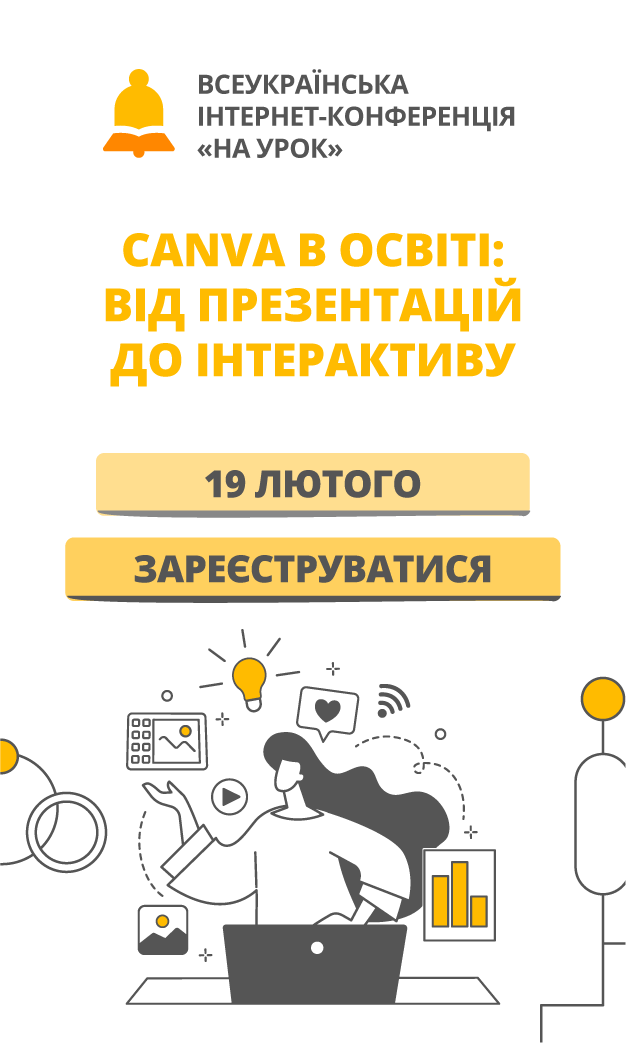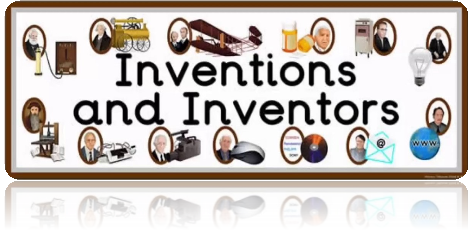9 КЛАС АНГЛІЙСЬКА МОВА (за підручником О. Карпюк) ТЕМА. Що ти знаєш? Наука і наукові винаходи. ПІДТЕМА. Вчені й винахідники.
СИНІВСЬКА ЗАГАЛЬНООСВІТНЯ ШКОЛА І-ІІІ СТУПЕНІВ
РОЗРОБКА УРОКУ
З АНГЛІЙСЬКОЇ МОВИ
9 КЛАС
ТЕМА. Що ти знаєш? Наука і наукові винаходи.
ПІДТЕМА. Вчені й винахідники.
(за підручником О.Карпюк, 2017)
Учитель Нікіфорова О.О.
2022
9 КЛАС АНГЛІЙСЬКА МОВА (за підручником О. Карпюк)
ТЕМА. Що ти знаєш? Наука і наукові винаходи.
ПІДТЕМА. Вчені й винахідники.
МЕТА. Навчальна: ввести та активізувати лексичний матеріал, який використовується у текстах та мовних вправах.
Розвиваюча: сприяти розвитку вміння спілкуватися про відомих вчених, винахідників, та їх внесок у науку; сприяти розвитку вміння сприйняття тексту на слух; вдосконалювати техніку читання текстів.
Виховна: Виховувати культуру спілкування, інтерес учнів до наукових відкриттів.
КОМПЕТЕНТНОСТІ: предметні - вміння говорити, чим займаються вчені, слухати й розуміти тексти про вчених, винахідників, їх винаходи, обговорювати запитання, давати усні відповіді; ключові - вміння застосовувати наявні знання в мовленнєвих ситуаціях (вміння навчатися протягом життя): описувати технології англійською мовою.
ОБЛАДНАННЯ: підручник “English”, 9 клас О.Карпюк; роздатковий матеріал (нова лексика); тексти про відомих вчених, мультимедійна презентація.
ХІД УРОКУ
І. ПІДГОТОВКА ДО СПРИЙНЯТТЯ ІНШОМОВНОГО МОВЛЕННЯ.
1. ПРИВІТАННЯ.
- Good morning, pupils! I’m very glad to see you.
- How are you?
- Let’s start our lesson.
2. ПЕРЕВІРКА ДОМАШНЬОГО ЗАВДАННЯ.
- Your homework was exercise 8, page 123. Read and answer the questions.
- Read your variant.
3. ПОВІДОМЛЕННЯ ТЕМИ ТА МЕТИ УРОКУ.
- Last lesson we started a new topic “Inventions and discoveries”. During this lesson we:
- revise and learn new vocabularies;
- read and listen texts about science, famous scientists, their inventions;
- do some exercises.
ІІ. ОСНОВНА ЧАСТИНА УРОКУ.
1. Використання лексичного матеріалу під час виконання практичних вправ.
- Look at the cards with new lexical material, and listen the translation.
BOTANY [ˈbɒtənɪ] ботаніка
CHEMISTRY [ˈkemɪstrɪ] хімія
GEOLOGY [ʤɪˈɒləʤɪ] геологія
LINGUISTICS [lɪŋˈgwɪstɪks] лінгвістика
PHYSIOLOGY [fɪzɪˈɒləʤɪ] фізіологія
PSYCHOLOGY [saɪˈkɒləʤɪ] психологія
SCIENCE [ˈsaɪəns] природничі науки, знання
- Write the date today. Open your books on page 124, exercise 1. Match the sciences with their definitions.
- Let’s check.
- Exercise 2, in oral form. Read the definitions of sciences, and translate what each of the scientist’s studies.
2. Аудіювання тексту, виконання після текстового завдання.
- Listen to the text, try to understand it.
SCIENCE
Science is important for most people living in the modern world for a number of reasons. In particular, science is important for world peace and consent for the understanding of environment, and for our world outlook.
Science is important for world peace in many ways. On the one hand, scientists have to develop many of the modern tools of war. On the other hand, they have also to keep peace through research, which has improved life for people. Scientists have us understand the problem of supplying the world with energy; they have begun to develop a number of solutions of the energy problem - for example, using energy from the sun and from the atom. Scientists have also analyzed the world's resources. Science studies the Universe and how to use its possibilities for the benefit of men.
Science is also important for everyone who is affected by modern technology. Many of the things that make our lives easier and better are the results of advances in technology and, if the present patterns continue, technology will affect us even more in the future than it does now. In some cases such as technology for taking salt out of ocean water, technology may be essential for our lives' on Earth.
The study of science also provides people with some knowledge of the natural world. Scientists are trying to predict earthquakes, are continuing to study many other natural events such as storms. Scientists are also studying various aspects of human biology and the origin and development of the human race. The study of the natural world may help improve life for many people all over the world. A basic knowledge of science is essential for everyone. It helps people to find their way in the changing world.
- Answer the questions.
1. Why science is so important in the modern world?
2. How does science help keep peace in the world?
3. How does science help solve the energy problem?
4. What proves that the study of science is important for understanding the natural world?
5. How science may improve life for many people?
3. Робота у групах. Опрацювання текстів про відомих вчених з метою отримання важливої інформації про їх життя та досягнення. (За вправою 3 (a), с. 125); виконання вправи 3 (a), с. 125.
- WORK IN GROUPS. I’ll divide all of you into 3 groups. Each of you read an information about famous scientists, try to understand, and do exercise.
I GROUP Charles Darwin
Darwin had not planned to be a scientist. He wanted to become a doctor. But he was interested in plants and animals.
A friend who knew about Darwin's interest in nature invited him to take the trip. Charles was 22 when he left England for a five-year trip around the world.
This trip is a very important one in the history of science, for it led Darwin to write one of the world’s most famous books. The book is "The Origin of Species".
It gives Darwin's ideas of how all the plants and animals of today have come from the very simple plants and animals that first lived on the Earth. Darwin was seasick for much of the voyage, but he came back with the notes for his great book.
He visited the Galapagos Islands, Australia, and New Zealand. There he saw many strange plants and animals.
These were Darwin's chief ideas: many more plants and animals are produced than can possibly live. There are no two plants and animals, even of the same kind, which would be exactly alike. The idea that all the plants and animals of today came from the simple plants and animals of long ago is called "The theory of evolution".
II GROUP Isaak Newton
Newton, one of the greatest scientists of all times was born in 1642 in the little village in Lincolnshire, England. His father was a farmer and died before Newton was born. His mother was a clever woman whom he always loved.
After the school, Newton studied mathematics at Cambridge University and received his degree in 1665. Then the university was closed because of the danger of plague and Newton went home for eighteen months. It was most important period in his life when he made his three great discoveries - the discoveries of the differential calculates, of the nature of white light, and of the law of gravitation.
These discoveries are still important for the modern science. Newton had always been interested in the problems of light. Many people saw colors of a rainbow but only Newton showed, by his experiments, that white light consists of these colors.
It is interesting how he discovered the law gravitation. Once, as he sat at the garden, his attention was drawn by the fall of an apple. Many people saw such unusual thing before.
But it was Newton who asked himself a question: "Why does that apple fall perpendicularly to the ground? Why doesn't it go sideward’s or upwards?" The answer to this question was the theory of gravitation, discovered by Newton.
Newton died at the age of 84, and was buried in Westminster Abbey, where his monument stands today.
III GROUP Michael Faraday
Michael Faraday is one of the great scientists in the history of man's work in electricity. He was born in a small village near London on September 11, 1791, in a poor family. At the age of thirteen Michael went to work in a bookbinder's shop, because he didn't have much schooling. Some of the scientific works and articles which passed through his hands aroused his interest in science and he started to read.
Sometime later Michael became a pupil of great scientist of that time, Sir Humphrey Davy. The boy accompanied Davy in his trips to Europe. Today almost all the electricity we use is generated by great machines with magnets in them, but in those days no one knew how to do it. English scientist could move the magnet near wire. This was a great moment in the history of man's electrical experiments. But Faraday didn't stop at this.
Faraday's scientific interests were varied. He made new kind of glass and a new kind of steel. Faraday made about two thousand difficult experiments and made countless discoveries in chemistry and physics. He made a wonderful machine which was the father of all the great machines that make electricity today. They light and heat our houses and they make our radio-sets work. Michael Faraday was the creator of the electric motor, who ushered us in the electrical age which had changed the face of the earth.
- Present the main information using texts.
- Group 1. Charles Darwin
- Group 2. Isaak Newton
- Group 3. Michael Faraday
- Exercise 39 (b), page 125. Complete the sentences, using useful information about scientists.
- Start the sentences with the words from the box.
- Let’s check.
ІІІ. ПІДСУМОК УРОКУ.
- What did you do at this lesson?
- What did you know about famous scientists?
- Thank all of you for your fruitful work.
- Your marks are ….
1. ДОМАШНЄ ЗАВДАННЯ.
- Your homework: to learn new vocabulary; to find and write an information about D. Mendeleyev, N. Copernic, I. Popov.
- Our lesson is over.
Нікіфорова О.О. Розробка уроку 9 клас, за підручником О. Карпюк. Англійська мова. ТЕМА. Що ти знаєш? Наука і наукові винаходи. ПІДТЕМА. Вчені й винахідники.
Анотація. У розробці конспекту уроку подано текст з аудіювання за темою уроку з після текстовим завданням; матеріал про життя та досягнення у науці відомих вчених Англії: Ч. Дарвіна, І. Ньютона, М. Фарадея. На уроці використовується Робота у групах під час опрацювання текстів, яка допомагає здобувачам освіти висловити свою точку зору іноземною мовою, відповідно поданому завданню, та оцінити власне засвоєння теми наприкінці уроку. Урок супроводжується мультимедійною презентацією.


про публікацію авторської розробки
Додати розробку

